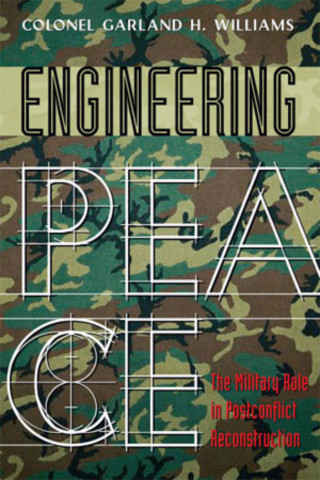Garland H. Williams
Colonel (ret) Garland H. Williams, Ph.D, a native of Atlanta, GA, graduated from Auburn University as a Pre-Law/Journalism major and was commissioned a Second Lieutenant in the US Army Corps of Engineers. As a company grade officer, Garland served in a variety of command and staff assignments both at Fort Stewart, Georgia, and in Bad Kissingen, Germany. He attended the Duke University Graduate School, attaining his Master of Arts and PhD in Political Science. As a field grade officer, his assignments included duty as an Assistant Professor in the Social Sciences Department at the United States Military Academy and staff officer positions in the 24th Infantry Division in the United States, Allied Forces Southern Europe in Naples, Italy, and the Army Secretariat in the Pentagon. Following his Pentagon assignment, Garland completed a US Army War College fellowship at the United States Institute of Peace, publishing his book titled "Engineering Peace: The Military Role in Postconflict Reconstruction". Garland commanded at all levels from platoon through brigade, including command assignments in the United States, Germany and Japan, and operational deployments to Kuwait, Egypt, Bosnia, Kosovo, and Albania. As a brigade commander, he served as the Garrison Commander for US Army Garrison, Japan, and culminated his 28-year military career as the Commandant of the Army Management Staff College at Fort Belvoir, Virginia, co-authoring and editing the book "Perspectives On Leadership". He served for 7 years at the University of Phoenix, first as the Associate Regional VP for the Military Division, then the Dean of Operations for the Colleges of Humanities and Social Sciences, the Academic Dean for the College of Criminal Justice & Security and the Vice President for Military Relations. He currently lives in Atlanta and works as a Business Consultant for Aflac. His latest publication was a book chapter in 2016 titled "Reconstructing the Infrastructure of Damaged Societies". He was inducted into the International Adult and Continuing Education Hall of Fame in 2016.
Author's Books
In this timely work, Colonel Garland Williams analyzes the postconflict reconstruction gap in three case studies—Bosnia, Kosovo, and Afghanistan—and shows how military engineering brigades accompanying peacekeeping contingents can be put to use immediately after the conflict ends to restore vital infrastructure and social institutions.

